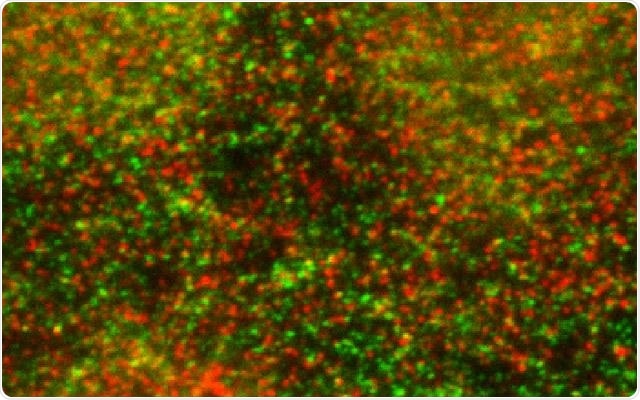A study conducted at the University of California has revealed how cells use G-protein-coupled receptors (GPCRs) and their waste disposal systems to mediate inflammation.

Endothelial cells stained with antibodies to track the GPCR (shown in green) and E3 ligase (shown in red) and detected by immunofluorescence confocal microscopy. Credit UC San Diego Health
GPCRs are signal transducers found in the cell membrane that enable cells to react to their surrounding environment and many drugs work by influencing GPCR function.
Malfunction of these proteins can lead to a number of illnesses, yet their structure and function is poorly understood.
The new findings, which have recently been published in the journal Cell Reports, suggest that certain cancer drugs that prevent cellular activity may be repurposed to treat vascular inflammation.
"We were surprised to discover that GPCRs and inflammation are influenced by ubiquitination -- a process that was previously thought to only mark proteins for destruction. Instead, we've unveiled new insights into both GPCR function and ubiquitination," says senior author JoAnn Trejo.
For the study, Trejo and colleagues studied endothelial cells and how the function of GPCRs is affected by ubiquitination (the tagging of proteins with ubiquitin). This ubiquitination instructs the cell’s waste disposal system to degrade that protein.
However, this study showed that ubiquitination preforms another role. The GPCR activated E3 ligase – the enzyme that carries out the ubiquitination. This induces a cascade of events that activate another protein called p38, which promotes inflammation.
Trejo says a small number of drugs that work by inhibiting E3 ligases have been FDA approved for the treatment of some cancers and some others are being tested in clinical trials: “This is the first time E3 ligases have been shown to also play a role in vascular inflammation, which broadens the potential applications for drugs that inhibit these enzymes. The field is really in its infancy."